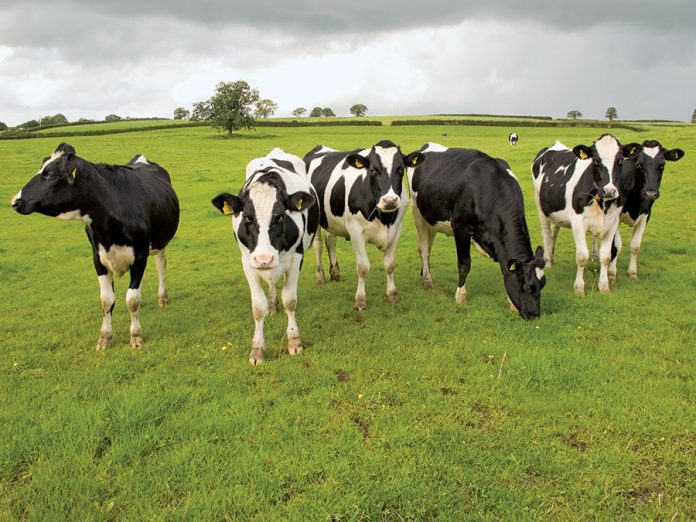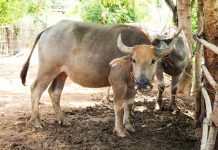This article has been written by Sanjay Choudhury pursuing B.A.LLB from Goalpara Law College (Gauhati University).
Table of Contents
Introduction
In our country, the cow is treated as a sacred animal and is a life-supporting being that needs protection and gives reverence. It has been a long major concern regarding the sale, consumption, export of meat and cattle beyond and within the borders of Assam state. Earlier there were no laws that could regulate the illicit large-scale smuggling of cows, especially to Bangladesh. Meat exports rose to 211% in the year 2016 and lakhs of cows were seized along the Indo-Bangla border. Considering these issues, Assam’s new Chief Minister Himanta Biswa Sarma tabled the Assam Cattle Preservation Bill, 2021 to replace the old Act (Assam Cattle Preservation Act, 1950) and bring further to it.
During the course of this article, I will be covering some important provisions of this Act relating to prohibition of cattle slaughter, transportation of cattle, who are the competent authorities for issuance of certificate for cattle slaughter, prohibition on the sale of beef and its products beyond an area limit, penalties for contravention of the provisions, its exemptions, etc.
Objectives and applicability
The prime object of this Act is to protect and preserve the cattle as mentioned in the schedule from being slaughtered without any authorization, illegally transported, consumed near Hindu majority areas. The Act shall be applied to the whole of the state of Assam.
Important definitions and schedule of cattle in the Act
Cattle – means an animal specified in the schedule of the Act.
Slaughter – means killing by any method whatsoever and includes maiming and inflicting physical injury which in the ordinary course shall cause death.
Beef – means flesh of cattle in any form whose slaughter is prohibited under this Act.
Transport of cattle – means transport by any vehicle including boat, vessel, etc., and/or transportation of cattle on foot.
Veterinary officer – means an officer of Animal Husbandry and Veterinary Department of Assam.
Seven cattle names have been given in the schedule that would come under this Act:
- Bulls;
- Bullocks;
- Cows;
- Heifer;
- Calves;
- Male and female buffaloes; and
- Buffaloe’s calves.
Constitutional provision with regard to the ban on cattle slaughter
Due to the majority Hindu population in India, there was an urge among the people that cows should be protected due to attachment of religious sentiment and a wave was spread through letters and telegrams to the lawmakers to make legislation on the prohibition of cow slaughter. Therefore, while framing the Constitution, our forefathers have inserted in Article 48 for raising the standard of Animal Husbandry and preservation of cattle by avoiding slaughter. Earlier it was recommended that cow slaughter be included in the fundamental rights section of the Constitution but later, on the advice of Dr. Ambedkar, it was incorporated in the Directive principles of state policy.
Article 48 states that “The organization of agriculture and animal husbandry The State shall endeavor to organize agriculture and animal husbandry on modern and scientific lines and shall, in particular, take steps for preserving and improving the breeds, and prohibiting the slaughter, of cows and calves and other milch and draught cattle”.
Salient features of this Act
Section 4: Prohibition of slaughter of cattle – No person shall slaughter any cattle or cause or offer it to be slaughtered. However, the killing of cattle by accident shall not be considered as slaughter under this Act.
Section 5: Prohibition of slaughter of cattle without a certificate from competent authority – Only with the prior approval in the form of a certificate obtained by the registered Veterinary Officer under the Animal and Husbandry Department, a fit cattle can be slaughtered in a registered slaughterhouse.
No certificate shall be issued by the authority if it is of the opinion that the cattle is less than fourteen years of age and it has become permanently incapacitated due to accident or deformity, provided it is not a cow, heifer, or calf.
All issuance and refusals of the certificate shall be maintained as records for future reference. A prescribed fee shall be levied for obtaining such a certificate. In case any certificate is not issued, the order shall be final and one cannot go to court to seek their redressal.
Section 6: Prohibition of slaughter of cattle at places other than slaughterhouse – Every cattle under this Act shall be slaughtered in a slaughterhouse which is licensed and recognized by the government, provided the State Government may exempt certain places of worship or certain occasions for the slaughter of cattle other than cow, heifer or calf for religious purposes.
Section 7: Prohibition on the transport of cattle – No person shall transport any cattle:
- From any other state entering through Assam to any place outside the state of Assam.
- Nor any movement to and from the state of Assam.
- Nor to be transported within the state boundaries of Assam without any valid permit.
The valid permit will be given only for agricultural and animal husbandry purposes along with some prescribed fees. If a person transports any cattle without any permit then it shall be deemed that the cattle are being transported for slaughter purposes.
Exception – There shall be no permission required for carrying cattle within a district to any grazing field or for any agricultural or animal husbandry purpose nor any permission needed for purchases and sales from the Animal market within a particular district.
Section 8: Prohibition on sale of beef and beef products – Selling of beef or its products directly or indirectly within the radius of 5 km of any temples, satras, or any other religious institutions belonging to the Hindus are strictly prohibited also no permission shall be granted in those areas inhabited by Hindu, Jain, Sikh and other non-beef eating communities.
Section 11: Power to enter, inspect, search, seizure and detain – This Act has given the power to a Police officer, not below the rank of Sub-inspector or a registered Veterinary officer or any person authorized on behalf of the government to enter in such premises for inspection and seize such vehicle or conveyance which may be used for commission of an offense and also detain such culprit and take him to the nearest Magistrate.
Appeals
Once these above provisions are contravened and if an order is passed against Sections 7 and 11, the aggrieved person shall have thirty days to file an appeal to the Session Judge in that jurisdiction for such seizure or detention. After a reasonable opportunity of being heard, the Judge may pass an order as it deems fit.
Penalties and offenses
One shall be punished with imprisonment of a minimum of three years and a maximum of eight years and a fine of not less than three lakhs rupees which may extend to five lakh rupees or both if the person contravenes Sections 5,6 & 7 of the Act. All offenses under this Act shall be cognizable and non-bailable which allows the police to detain or arrest the suspect without any warrant. For committing the same offense again the punishment shall be doubled.
If the suspect has absconded or is concealing himself, the police officer not below the rank of Superintendent of Police has the authority to publish the name and photograph of the absconder in the locality where he resides. All abatements and attempts to commit offenses is also punishable under this Act.
Exemptions
There are certain exceptions that shall not apply to some category of cattle under this Act:
- Where any cattle is undergoing any experimental or research or operated upon vaccine lymph or serum by an institution under the control of the Government both State and Central.
- Where slaughter of any cattle is done for the interest of the public health after being certified by the Veterinary Officer.
- Where any cattle are suffering from infectious or contagious diseases which may be harmful to other cattle and slaughter of that cattle is permitted by the Veterinary Officer.
- Where slaughter of cattle is allowed during religious occasions excluding cow, heifer, and calf.
- Where slaughter of cattle is permitted for feeding the flesh to the animals in the state zoo (excluding cow, heifer, and calf).
Difference between the old and the new Act
The old Act lacked many provisions that could not protect the cattle or restrain from illicit transportation and the new act came with more strict measures to block the loopholes in the previous act. The major differences are:
- One extra cattle has been added in the Act i.e. Heifer.
- Cattle excluding cow, calf, and heifer shall be permitted for slaughter in slaughterhouses rather than any other places prescribed by the State Government.
- In the old Act, power was given to the officers to enter and inspect premises if they had reason to believe that an offense is likely to be committed, but newly they have been empowered to search, seize and also detain the offender.
- Penalties have been increased from six months to a minimum of three years of imprisonment and a fine of one thousand rupees to a minimum of three lakh rupees.
- In the old act only on occasion such as Id-uz-Zuha cattle could be slaughtered but in the new act, slaughter shall be permitted excluding the cattle such as cow, calf, and heifer.
Conclusion
Though the policymakers have brought this Act into effect considering the above-explained issues, it is likely to pose a problem for the Christian majority neighboring states such as Nagaland, Meghalaya, and Mizoram where beef is consumed. This Act does not intend to bring any communal disharmony and hurt the sentiments of those who worship this animal which has been a tradition for ages.
References
- https://assam.gov.in/sites/default/files/2021-07/Assam-Cattle-Preservation-Bill-2021.pdf
- https://legislative.assam.gov.in/sites/default/files/swf_utility_folder/departments/legislative_medhassu_in_oid_3/menu/document/The%20Assam%20Cattle%20Preservation%20Act%2C%201951_0.pdf
- https://scroll.in/article/998735/cow-protection-was-a-sensitive-subject-in-india-even-when-the-constitution-was-being-framed
- https://www.timesnownews.com/india/assam/article/cattle-preservation-bill-passed-in-assam-assembly-no-more-sale-of-beef-within-5-kms-of-temples-details/798813
- https://www.thehindu.com/news/national/other-states/assam-cow-protection-bill-meghalaya-will-raise-issue-if-state-is-affected-cm/article35246373.ece
LawSikho has created a telegram group for exchanging legal knowledge, referrals, and various opportunities. You can click on this link and join:
https://t.me/joinchat/J_0YrBa4IBSHdpuTfQO_sA
Follow us on Instagram and subscribe to our YouTube channel for more amazing legal content.
 Serato DJ Crack 2025Serato DJ PRO Crack
Serato DJ Crack 2025Serato DJ PRO Crack









 Allow notifications
Allow notifications


